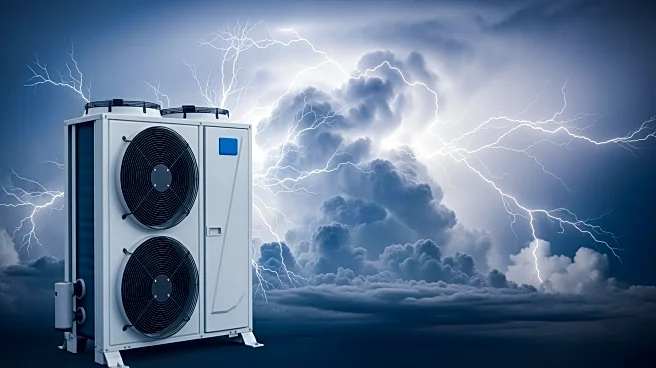What's Happening?
The Trump administration is proposing to relax federal regulations on hydrofluorocarbons (HFCs), potent greenhouse gases used in refrigeration and air conditioning. This move reverses a bipartisan law signed by President Trump in 2020 aimed at phasing
out HFCs due to their significant contribution to global warming. The Environmental Protection Agency (EPA) under Administrator Lee Zeldin argues that the current regulations, set to impose steep restrictions starting next year, are causing supply shortages and price hikes. The proposal has been met with mixed reactions, with some industry groups supporting the delay, while others express concern over the disruption of planned transitions to alternative refrigerants.
Why It's Important?
The proposed relaxation of HFC regulations has significant implications for both environmental policy and industry operations. HFCs are known to be thousands of times more potent than carbon dioxide in contributing to global warming, making their phaseout crucial for climate change mitigation. The delay in regulations could hinder the progress made by industries that have already invested in alternative refrigerants, potentially increasing costs for U.S. consumers and giving an advantage to foreign competitors. The move also risks creating a patchwork of state regulations, as states like California and New York have similar requirements to the current federal rule.
What's Next?
The EPA's proposal to relax HFC regulations is likely to face scrutiny from environmental groups and states with stringent climate policies. Industry stakeholders who have already adapted to the 2020 law may push back against the changes, citing potential market disruptions and increased consumer costs. The administration's decision could lead to legal challenges and further debate over the balance between environmental protection and business interests. The outcome of this proposal will be closely watched by both domestic and international stakeholders involved in climate policy and refrigerant manufacturing.
Beyond the Headlines
The rollback of HFC regulations highlights broader tensions in U.S. climate policy, particularly the challenge of aligning federal and state regulations. It also underscores the ongoing debate over the role of government in regulating industries to address environmental concerns. The decision may have long-term implications for the U.S.'s ability to meet international climate commitments and maintain competitiveness in the global market for environmentally friendly technologies.















